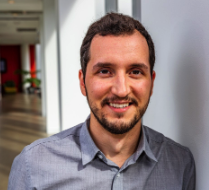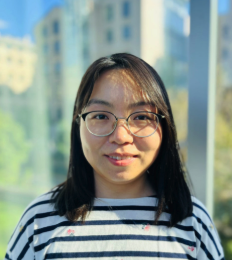Improving STEM K-12 Learning Using Optimal Spaced Retrieval in an Existing Educational Technology Platform
Our goal is to create a smart study tool that helps students truly remember what they learn in science and math classes, not just for a test, but for the long haul. It's like having a personalized tutor that knows exactly when to remind students of what they've learned. What makes our tool special is that it smartly adjusts to any amount of time a student has for practice, unlike others that can overwhelm them. This means less stress for teachers and students, and ultimately, more kids feeling confident and excited about STEM careers, especially as we help them catch up after the pandemic.
Who We Are

Paulo Carvalho
Principal Investigator
Dr. Paulo Carvalho is an Assistant Professor in the Human-Computer Interaction Institute at Carnegie Mellon University. His research explores how AI can revolutionize learning by creating engaging, practice-first environments. He uses data analytics and computational modeling to understand student learning, motivation, and interest and develop precise models that inform better learning experiences. He is currently investigating how generative AI can empower these practice-focused approaches, boosting engagement and freeing teachers to provide personalized support.

Philip Pavlik
Co-Principal Investigator
Dr. Philip Pavlik is an Associate Professor at the University of Memphis. He is the Director of the Optimal Learning Lab. His research involves educational software design, computational modeling of cognition, concept and fact learning, transfer of learning, and strategies for learning.

Joshua Ling
Co-Principal Investigator
Josh is a former middle school math teacher and the founder of Podsie, a free, personalized, and automated learning tool for teachers that helps their students remember what they've learned by leveraging key learning science strategies such as: retrieval practice, spacing, and personalized review. Podsie is a part of the Innovation Studio at Teaching Lab.

Meng Cao
Postdoctoral Research Fellow
Dr. Meng Cao is a postdoctoral fellow in the Human-Computer Interaction Institute at Carnegie Mellon University. Her research focuses on optimal learning, adaptive learning, category learning, and computational modeling. She received her Ph.D. in Experimental Psychology (Cognitive) from the University of Memphis.

Yumou (James) Wei
Ph.D. Student
James is a Ph.D. student working with Dr. Paulo Carvalho in the Human-Computer Interaction Institute at Carnegie Mellon University. He investigates what knowledge components students can learn from a set of instructional materials and how well students retain and transfer this knowledge across different learning contexts. His research focuses on computational modeling of learning processes and the development of adaptive educational technologies.
Publications & Findings
Cao, M., & Carvalho, P. F. (in press). Adaptive Spaced Retrieval Practice in Algebra I: A Classroom-Based Study. Proceedings of the Annual Meeting of the Cognitive Science Society.https://osf.io/preprints/osf/ge7vq_v1
Cao, M., Yan, V. X., Sana, F., & Carvalho, P. F. (in press). Balancing Spacing and Repetition for Time-Constrained Learning. Proceedings of the Annual Meeting of the Cognitive Science Society.https://doi.org/10.31219/osf.io/f6xu2_v3
Wei, Y., Carvalho, P., & Stamper, J. (In press). KCluster: An LLM-based Clustering Approach to Knowledge Component Discovery. Proceedings of the 18th International Conference on Educational Data Mining. International Educational Data Mining Society.https://arxiv.org/abs/2505.06469
Pavlik, P. I., Jr., & Eglington, L. (2025). Evolutionary features for mitigating cold starts in logistic knowledge tracing. In C. Mills & G. Alexandron (Eds.), Proceedings of the 18th International Conference on Educational Data Mining (EDM 2025) (pp. xx–xx). International Educational Data Mining Society.https://educationaldatamining.org/edm2025/accepted-papers/
